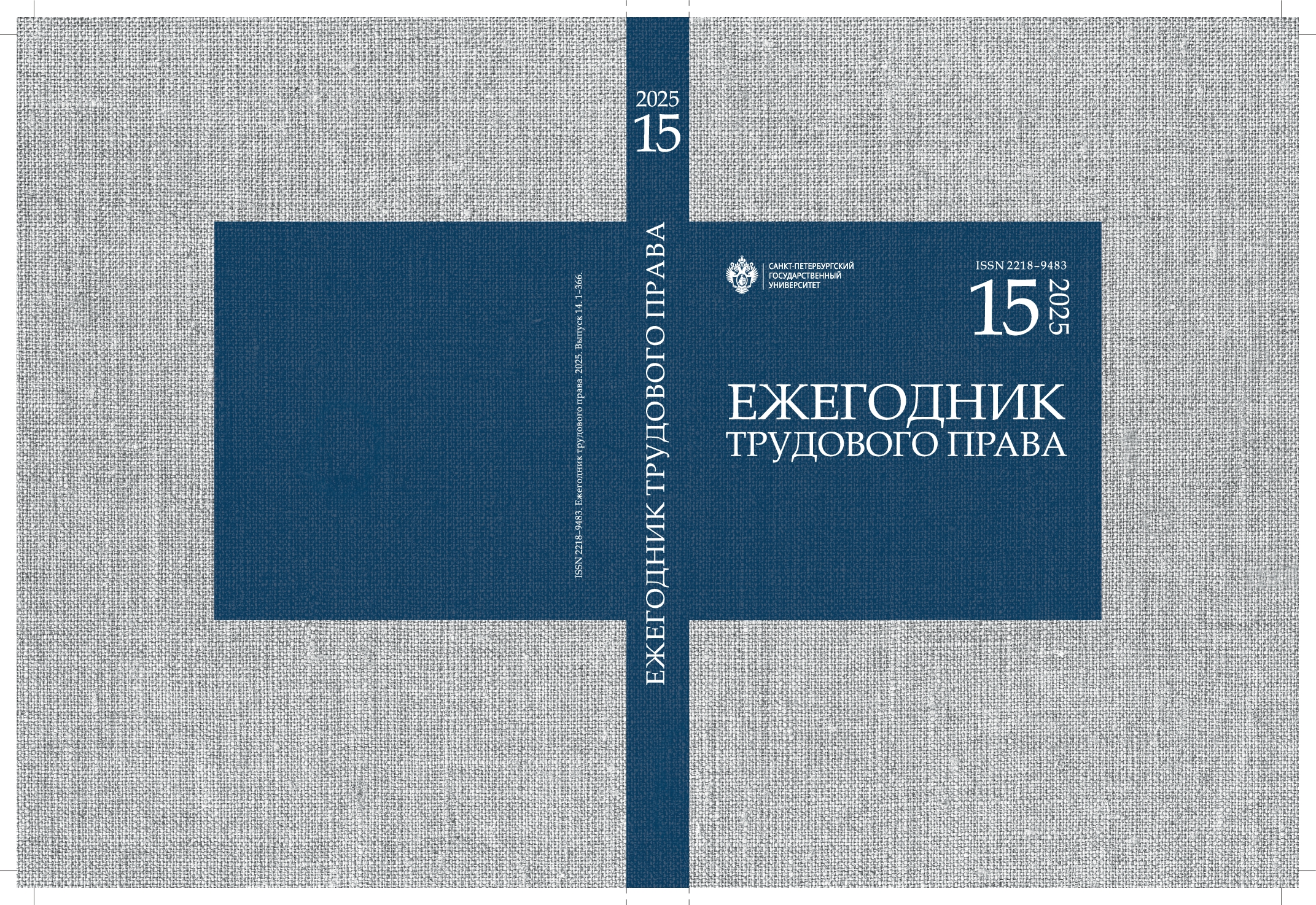Принципы правового регулирования отношений занятости
DOI:
https://doi.org/10.21638/spbu32.2025.109Аннотация
Отношения в сфере занятости регулируются конвенциями МОТ, соглашениями государств-участников СНГ, Договором о ЕАЭС 2014 г., а также двусторонними договорами между РФ и другими странами. В рамках СНГ 24.09.1993 г. был заключен Договор «О создании Экономического союза», который предполагает свободное движение товаров, услуг, капиталов и рабочей силы. Но, несмотря на провозглашение свободы передвижения, порядок привлечения работников, квалификационные, возрастные и иные требования к ним должны были устанавливаться страной трудоустройства, а численность принимаемых работников - определяться на основе двусторонних соглашений. Таким образом, фактически защищался национальный рынок труда. По Соглашению между Правительством РФ и Правительством Республики Таджикистан о трудовой деятельности от 16.10.2004 г. (ред. от 29.10.2013) трудящийся-мигрант осуществляют временную трудовую деятельность в принимающем государстве при наличии разрешения на работу. В соответствии с Соглашением между Правительством РФ и Правительством Республики Узбекистан о трудовой деятельности и защите прав трудящихся-мигрантов от 04.07.2007 г. Стороны регулируют миграционные потоки путем установления квот и иных ограничений, предусмотренных национальным законодательством по предотвращению незаконной трудовой деятельности. На протяжении 30 лет отношения в области занятости регулировались Законом РФ «О занятости населения» от 19.04.1991 г. № 1032-1, который действует до 01.01.2025 г. с изменениями, внесенными Федеральным законом от 12.12.2023г. № 565-ФЗ «О занятости населения в Российской Федерации». В ст. 4 Закона № 565-ФЗ указаны лишь два принципа правового регулирования отношений в сфере занятости. Учитывая чрезвычайную актуальность задачи по упорядочению российского рынка труда в федеральном законе о занятости населения состав принципов необходимо расширить. В него следует включить принципы запрета принудительного труда, равноправия, бесплатности услуг по трудоустройству, доступности услуг ГСЗ, защиты национального рынка труда и преимущественного права российских граждан на трудоустройство, трехстороннего сотрудничества (совместной конструктивной работы) государства, работников и работодателей для достижения общенациональных целей и обеспечения государственного суверенитета.
Ключевые слова:
занятость, свобода движения товаров, услуг, капиталов и рабочей силы, МОТ, СНГ, ЕАЭС, трудовая миграция, свобода труда, принудительный труд, равноправие, дискриминация, доступность, рынок труда, трудоустройство, суверенитет, социальное партнерство, работодатели, профсоюзы, государство
Скачивания
Загрузки
Опубликован
Как цитировать
Выпуск
Раздел
Лицензия
Статьи журнала «Ежегодник трудового права» находятся в открытом доступе и распространяются в соответствии с условиями Лицензионного Договора с Санкт-Петербургским государственным университетом, который бесплатно предоставляет авторам неограниченное распространение и самостоятельное архивирование.




